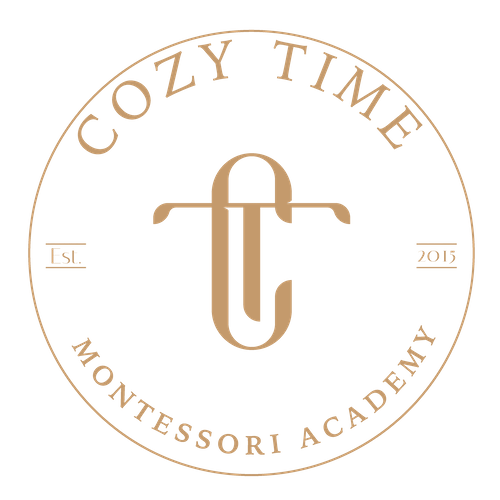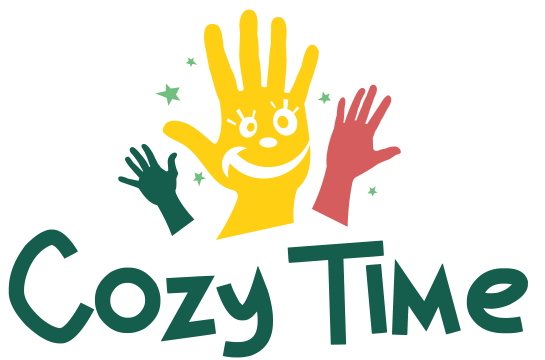One of my most fascinating experiences as an educator was observing my first Montessori classroom in action. The sight of a room filled with curious, engaged toddlers exploring materials with such focus and self-direction was truly remarkable. This moment marked the beginning of my journey into the world of Montessori education, a journey that has led me to understand the profound impact this teaching method can have on a child’s development.
Montessori: A Different Approach to Education
Montessori education, founded by Dr. Maria Montessori, is a child-centered approach that encourages children to be active participants in their learning. It’s about providing an environment filled with specially designed materials that cater to the child’s natural curiosity and desire to learn. The emphasis is on hands-on learning, where children learn through practical life experiences, sensory exploration and manipulative materials.
The philosophy extends beyond the classroom too. Many parents and caregivers find incorporating Montessori principles at home enriches their child’s learning experience and encourages their natural curiosity and desire to explore. The principles of Montessori education are not only beneficial in a daycare or school setting but can also be successfully applied at home.
Montessori Activities: Fostering Learning and Independence in Preschoolers
Montessori activities for preschoolers are designed to foster independence, encourage exploration, and develop a love for learning. These activities are hands-on, practical, and relevant to the child’s world. They offer children the opportunity to learn at their own pace, following their own interests, and in their own style. Incorporating Montessori activities for kindergarten readiness helps children build essential skills such as critical thinking, problem-solving, and social interaction. By engaging with materials that promote these skills, preschoolers are better prepared for the transition into a structured school environment. Moreover, these activities encourage creativity and self-motivation, ensuring that children remain enthusiastic about their educational journey. Through engaging in montessori learning activities for toddlers, children can practice essential life skills such as problem-solving and decision-making. These activities not only promote cognitive development but also enhance fine motor skills as children manipulate various materials. Ultimately, this approach helps to cultivate a sense of confidence and autonomy in young learners. By integrating Montessori methods for young learners, children gain the confidence to take initiative in their learning journeys. These techniques create an environment where mistakes are seen as valuable learning opportunities, enhancing critical thinking and problem-solving skills. As a result, preschoolers not only acquire knowledge but also develop a sense of responsibility and self-discipline that will serve them throughout their lives.
When I was a Montessori teacher in Toronto, I witnessed first-hand how these activities helped children learn skills such as concentration, coordination, problem-solving, and self-care. Children would spend long periods of time engaged in activities such as spooning beans from one bowl to another, tracing letters, or matching objects. These seemingly simple tasks provided a wealth of learning opportunities for the children.
As a parent or caregiver, your role in Montessori learning is to act as a guide. You prepare the environment with suitable activities, observe your child’s interests and progress, and step in to assist only when necessary. The goal is to support your child’s autonomy and encourage their natural curiosity and desire to learn.
Whether you are a parent looking for a unique daycare experience for your child, a teacher seeking a fresh approach to early childhood education, or just someone who is curious about Montessori, I hope you find inspiration in these principles and activities. Remember, the goal of Montessori is not to rush learning, but to foster a lifelong love for it. So, take the time to observe, guide, and enjoy the journey of discovery with your child.
If you’re interested in learning more about our Montessori center in Toronto, do not hesitate to reach out to us at Cozytime Child Care at (416) 602 3811. Our team is always happy to answer any questions and guide you through our programs.
Anecdote: The Montessori Revelation
I remember the day like it was yesterday. My four-year-old niece, Sarah, was visiting us in Toronto. She was a bundle of energy, always on the move, and we were struggling to keep her entertained. That’s when my neighbour, a daycare educator, suggested trying out some Montessori activities at home. I was sceptical at first, but the transformation I witnessed was nothing short of miraculous. From that day forward, I became a staunch advocate for Montessori methodology, and today, I want to share my insights with you.
An In-depth look at Montessori Activities for Preschoolers
Montessori activities are not just about keeping children occupied; they are about fostering independence, nurturing curiosity, and laying a solid foundation for lifelong learning. Let’s explore these activities in detail: Through hands-on experiences, children engage their senses and develop critical thinking skills, empowering them to explore the world around them. Incorporating Montessori arts and crafts ideas into daily activities can further enhance creativity and self-expression, allowing children to take ownership of their learning process. These opportunities not only make learning enjoyable but also instill a sense of accomplishment as they create tangible works of art. Montessori learning activities for kids encourage hands-on exploration and self-directed discovery, allowing each child to engage with materials at their own pace. By creating an environment rich in resources that stimulate the senses, these activities support cognitive development while instilling a sense of responsibility and community. Ultimately, they prepare children not only for academic success but also for a fulfilling life beyond the classroom.
Practical Life Skills
These activities are the cornerstone of Montessori education. They help children develop motor skills and coordination while learning how to care for themselves, others, and their environment. Activities like buttoning a shirt, setting the table, or watering plants give children a sense of responsibility and accomplishment.
Sensorial Activities
Montessori methodology believes in developing all five senses—sight, hearing, touch, taste, and smell. Activities like playing with sand, sorting objects by size or colour, or listening to different musical sounds help children refine their sensory perceptions and understand their environment better.
Language & Literacy
The Montessori approach to language and literacy involves exposing children to rich and varied language experiences. From storytelling to poetry recitation, and from learning alphabets to reading simple words, these activities foster a love for reading and solid language skills.
Mathematics
Montessori activities make learning numbers and basic mathematical concepts fun and interactive. Children learn about numbers, shapes, patterns, and sequencing through activities like counting objects, sorting shapes, or arranging objects in order.
How to Start Incorporating Montessori Activities at Home
Introducing Montessori activities at home doesn’t require a complete overhaul of your environment. Here are some practical ways to get started:
Setting Your Environment
Start by creating a child-friendly space that encourages exploration and independence. Use low shelves for storing materials, provide child-sized furniture, and ensure safety at all times.
Choosing the Right Time and Frequency
Introduce Montessori activities when your child is most receptive—perhaps in the morning or after a nap. Start with short sessions and gradually increase the duration as your child’s interest grows.
Following Your Child’s Lead
Montessori is all about respecting the child’s individuality. Observe your child’s interests and pace, and tailor the activities accordingly.
Resources
If you’re eager to explore more Montessori activities or want to deepen your understanding of the Montessori philosophy, here are some resources:
- Online resources: Websites like The Montessori Notebook, Montessori Print Shop, and Montessori Nature offer a treasure trove of Montessori activities, printables, and ideas.
- Books: “The Absorbent Mind” by Maria Montessori, “Montessori from the Start” by Paula Polk Lillard, and “The Montessori Toddler” by Simone Davies are excellent reads to understand Montessori principles better.
Finally, remember that incorporating Montessori activities at home is not about perfection; it’s about progress and enjoying the journey of exploration with your child. And if you’re looking for a daycare in Toronto that applies Montessori principles, you might want to consider Cozytime Child Care, a licensed Montessori center that fosters a love for learning in a nurturing environment. To learn more, give us a call at 416-602-3811.

